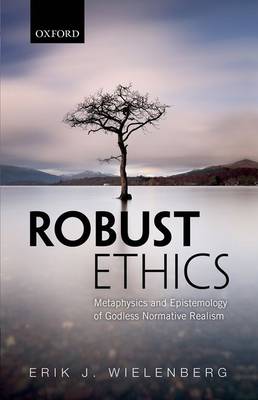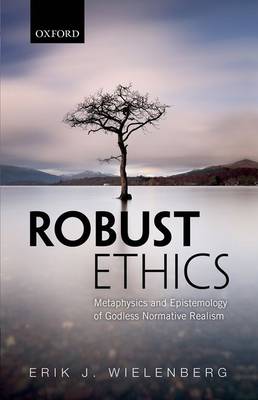
- Afhalen na 1 uur in een winkel met voorraad
- Gratis thuislevering in België vanaf € 30
- Ruim aanbod met 7 miljoen producten
- Afhalen na 1 uur in een winkel met voorraad
- Gratis thuislevering in België vanaf € 30
- Ruim aanbod met 7 miljoen producten
Zoeken
Robust Ethics
The Metaphysics and Epistemology of Godless Normative Realism
Erik J Wielenberg
Hardcover | Engels
€ 106,45
+ 212 punten
Omschrijving
Erik J. Wielenberg draws on recent work in analytic philosophy and empirical moral psychology to defend non-theistic robust normative realism and develop an empirically-grounded account of human moral knowledge. Non-theistic robust normative realism has it that there are objective, non-natural, sui generis ethical features of the universe that do not depend on God for their existence. The early chapters of the book address various challenges to the intelligibility and plausibility of the claim that irreducible ethical features of things supervene on their non-ethical features as well as challenges from defenders of theistic ethics who argue that objective morality requires a theistic foundation. Later chapters develop an account of moral knowledge and answer various recent purported debunkings of morality, including those based on scientific research into the nature of the proximate causes of human moral beliefs as well as those based on proposed evolutionary explanations of our moral beliefs.
Specificaties
Betrokkenen
- Auteur(s):
- Uitgeverij:
Inhoud
- Aantal bladzijden:
- 216
- Taal:
- Engels
Eigenschappen
- Productcode (EAN):
- 9780198714323
- Verschijningsdatum:
- 25/11/2014
- Uitvoering:
- Hardcover
- Formaat:
- Genaaid
- Afmetingen:
- 145 mm x 218 mm
- Gewicht:
- 408 g

Alleen bij Standaard Boekhandel
+ 212 punten op je klantenkaart van Standaard Boekhandel
Beoordelingen
We publiceren alleen reviews die voldoen aan de voorwaarden voor reviews. Bekijk onze voorwaarden voor reviews.











